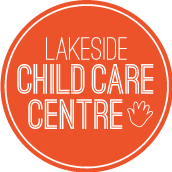Welcome To Your Emergent Curriculum!
Preschool, Ages 2.5 - 4 yrs
Let the learning adventure begin! You’ll find our sample weekly plans below.

Begin your adventure →
Children’s interests serve as the basis for program development;
Expression of individual strengths is ensured;
Unique learning needs are supported;
Curriculum content is an extension of home/family life;
Increased parental involvement is encouraged and;
Diversity is celebrated in its fullest form.
Week 1 — Same & Different
Teaching Preschoolers Object’s Similarities & Differences
-
At Lakeside Child Care Centre, we want to prepare your preschooler for success!
Our weekly learning plans include goals based on not only the Emergent Curriculum but also on the Canadian Standard For Milestone Assurances.
This guides helps us to prepare your child for Junior Kindergarten.
During our Week 1 learning, we will be working with objects. Your teacher will choose what mediums and objects are used. We will be learning: How are the objects around us similar? How are they different?
Parents can follow along by asking your child questions about the world around them.
-
One of the mediums we use to encourage our preschoolers to understand similarities and differences is through our sensory table.
Our sensory table is a popular destination during free play/ activity time. Your teachers will update the sensory bin based on various fun factors such as holidays happening, seasons and nature, and child directed interests, such as dinosaur land!
Week 2 — Mapping The Math Path
Learning Numeracy & Math Basics
-
Using the Emergent Curriculum and the Canadian Standard For Milestone Assurances, we introduce basic math skills to your preschooler.
During our Week 2 learning, your teacher will create activities that teach the numbers 1-10.
The goal is that your child will be able to recognize the numbers when individually pointed out or can indicate by pointing.
We encourage one-to-one correspondence (points to each object as they count)
We will use the by 10s rule for progression. Each child will move at their own learning pace.
-
During our Math Path learning, we will introduce the more/less concept that is a building block for kindergarten math basics.
Parents can follow along and encourage their child’s grasp of the more or less concept using every day items and foods!
Week 3 — Fine Motor Skills & Cognitive Development
Writing & Drawing
-
Writing in early childhood is good practice for fine motor skills and language development, as an extension of cognitive development. It can also be a creative outlet for children.
During week 3, your teacher will create unique activities that encourage writing basics using the jump off point of letter formation.
Parents can encourage their child by having slimmer grip mediums available at home, such as pencils, slim markers & paint brushes.
-
Writing comes after verbally and visually learning letters and the alphabet.
It also comes after learning basic words, such as the names of colours, shapes or objects. This way, preschoolers can piece together the idea that writing is a symbolic form of language.
They can put together letters to make words. Those words will have meaning if the preschoolers can recognize, speak and use them verbally, first.
Check in with your teacher to follow along on our letter writing basics.
Week 4 — Social Skills
Life Skills For Preschoolers
-
During Week 4, we are free range, learning how to interact and navigate the social world of preschool.
Your teacher will be observing and noting your child’s play behaviour, such as: parallel play, imitating peers, taking turns, leading and following peers during imaginative play.
Using the Emergent Curriculum, we encourage each child’s specific interests and your teacher will observe how they share these with their peers.
-
We will be looking at how each child regulates their unique emotions, such as:
How they identify likes & dislikes.
How they identify emotions in themselves
How they Label emotions in themselves
How they justify an emotion once identified/ labelled. (for example if a peer is crying, the child can say they are crying because they fell down and are hurt)
How they demonstrate empathy or aggressive behaviour. (no judgements, preschoolers are still learning)
-
During this week, your teacher will also be observing and making brief notes on how your child navigates the group environment.
We will be looking at:
Does your child seek assistance from adults?
Do they seek assistance from peers?
Do they give assistance to peers?
Do they respond/ participate when one or more children are present?
Do they use appropriate attention seeking behaviours?
Can they follow the group routine and directions?
How are they with transitions such as activity time to snack time, or outdoor play to nap time?
**Our Life Skills observation curriculum is a wonderful resource tool for our teachers to be able to understand and encourage your child’s development.





